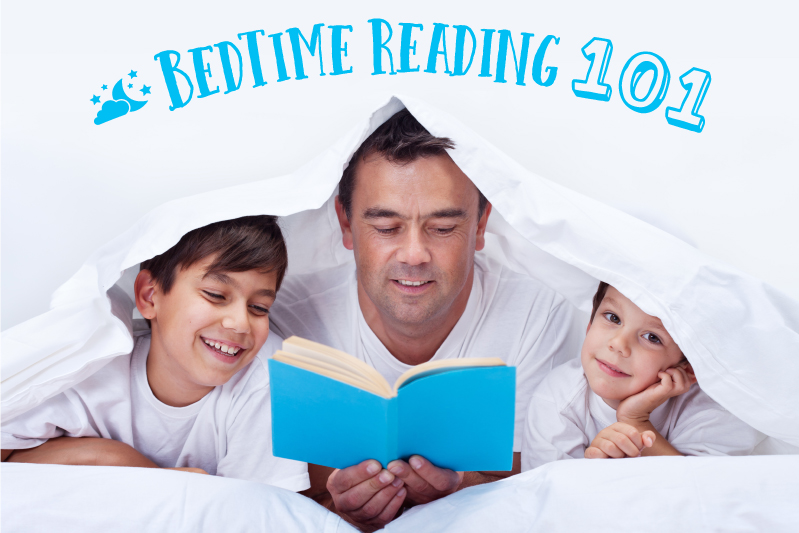Bedtime Reading 101: How and Why to Make the Most of this Important Activity
Bedtime reading can take children to a safe and enchanted world for a few minutes each night; and when kids are cozy and comfortable, reading aloud to them can help them “de-compress” from any worries from the day. Reading to your child is also a special time to be close to your child and bond with them. A wonderful and magical moment for the two of you to spend together with no interruptions, a precious time in this extremely busy and fast moving world we live in.
And as if that weren’t enough. . .there are several important benefits to their learning, too!
Discover how your child’s learning can benefit from bedtime reading, and how you can maximize the value of your nightly sessions:
Increased Language and Vocabulary Skills
Many researchers believe that during this nighttime ritual, you’re actually boosting your child’s brain development. Parents can use bedtime stories as a stepping stone for conversation in order to enhance a child’s language skills. For example, while reading with a young child, a father might point to Curious George’s baseball cap and ask questions like, “What color is the hat? Do you have a hat like that? Can you picture what color it is?”, offering practice connecting language and imagery. Reading with a child will expand their vocabulary even more than just talking with them will. This is true because books introduce kids to ideas and objects—such as porridge or kangaroos—that may not be in their direct environment and therefore not a part of their daily conversations. Look for stories that contain particularly rich or colorful language in order to stimulate your child’s vocabulary.
Improved Critical Thinking Skills
You know the phrase well: “One more time, please!” It might seem like this only serves to delay bedtime. But what kids—and parents—may not know is that reading a book repeatedly may help a child develop his critical thinking skills. The first time children hear a book, they may not fully understand what they listened to. But as they hear it again and again, they start to notice patterns and sequences in the story. Children learn the components of a story, they learn how to predict events that happen in a story, and they learn how to recall events in a particular sequence about stories they have heard. You can further this benefit by asking questions after “The End” like, “What do you think will happen next? How do you see that happening?” or “What do you think would have happened if. . .and what would that have looked like?”
By exercising critical thinking skills during bedtime reading, you are providing a skill set that will be beneficial all through their educational years.
Development of Reading Comprehension Skills
Most parents think the bedtime story stage is over once their snuggler learns to read. It doesn’t have to be! Continue this ritual and you can help her become an even better reader than she is right now. In fact, it’s during this time that your child develops reading comprehension skills. To ensure that her reading comprehension is intact, ask her what the story was about, or what she thinks will happen next, or how she would end the story differently. This is the time to confirm that your child is reading for meaning. If she doesn’t understand what she’s reading or listening to, she’s lost the meaning. Experts suggest that parents continue the tradition of bedtime reading even into the teenage years. By choosing books that are slightly above a teen’s skill level, you’ll continue to expose them to new words to add to their vocabulary. And books you’re reading with your child can turn into topics of discussion during dinner time conversation, which continues to be a critical time for connecting with your child.
Improvement of Reading Skills
As your kids reach the upper-elementary grades, their reading demands increase, yet one-on-one reading instruction for competent readers doesn’t. Listening to you read more advanced books shows her strategies that will help her at school. By listening to the stories that you read, she can see and hear important sight words and learn how to pronounce words correctly. You read aloud with expression. You pause for punctuation. You raise and lower your voice in tune with the action. You speed up or slow down to indicate the degree of tension in the text. All of these components are necessary in order to become independent, global readers.
_______________________
Bedtime reading can be an opportunity to develop the imagery-language connection as a foundation for your child’s learning skills. However, if you have any concerns about your child’s ability to understand stories, we’re here to help. Contact us for ideas: 800-233-1819







